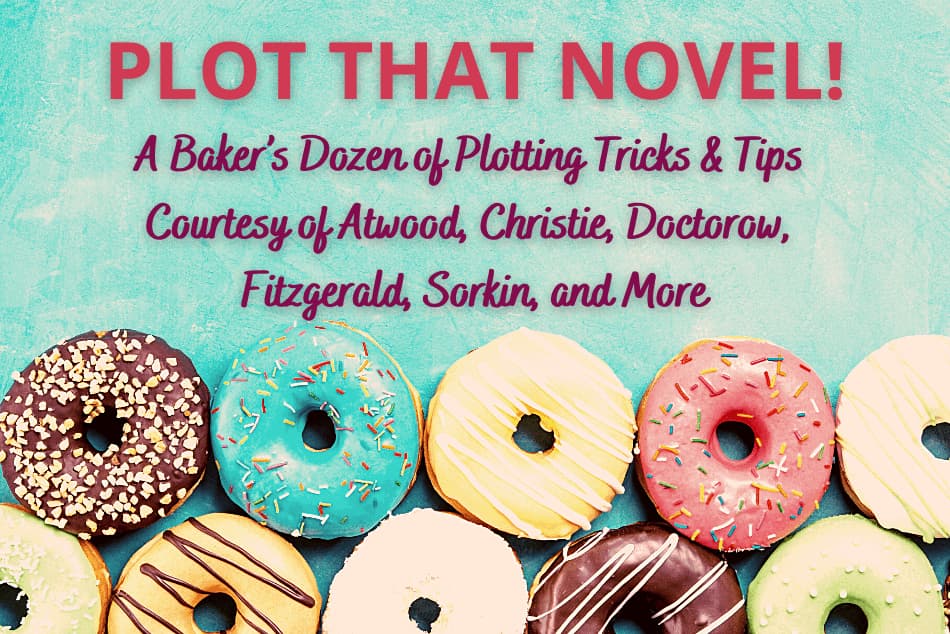- Start with characters.
“Action is character.”
― F. Scott Fitzgerald
- Start with action.
“Get your character in trouble in the first sentence and out of trouble in the last sentence.”
― Barthe DeClements
- Put your characters in motion.
“All fiction is about people, unless it’s about rabbits pretending to be people. It’s all essentially characters in action, which means characters moving through time and changes taking place, and that’s what we call ‘the plot’.”
― Margaret Atwood
- Run the whole show.
“The writer must be a participant in the scene… like a film director who writes his own scripts, does his own camera work, and somehow manages to film himself in action, as the protagonist or at least the main character.”
― Hunter S. Thompson
- Milk the big conflicts.
“I think all art comes out of conflict. When I write, I am always looking for the dramatic kernel of an event, the junctures of people’s lives when they go in one direction, not another.”
― Joyce Carol Oates
- Milk the medium and small conflicts, too.
“Any time you get two people in a room who disagree about anything, the time of day, there is a scene to be written. That’s what I look for.”
― Aaron Sorkin
- Make the most of the classic three-act structure.
“The three-act structure is intrinsic to the human brain’s model of the world; it matches a blueprint that is hard-wired in the human brain, which is constantly attempting to rationalize the world and resolve it into patterns. It is therefore an inevitable property of almost any successful drama, whether the writer is aware of it or not.”
― Edoardo Nolfo
- Make the most of the hero’s journey structure.
“The usual hero adventure begins with someone from whom something has been taken, or who feels there is something lacking in the normal experience available or permitted to the members of society. The person then takes off on a series of adventures beyond the ordinary, either to recover what has been lost or to discover some life-giving elixir. It’s usually a cycle, a coming and a returning.”
― Joseph Campbell
- Keep building suspense throughout your story.
“Real suspense comes with moral dilemma and the courage to make and act upon choices. False suspense comes from the accidental and meaningless occurrence of one damned thing after another.”
― John Gardner
- Use/abuse your genre conventions.
“If you write in category, you write knowing there’s a framework, there are reader expectations.”
― Nora Roberts
- Just keep on driving till The End.
“[Writing a novel] is like driving a car at night. You never see further than your headlights, but you can make the whole trip that way.”
― E. L. Doctorow
- When you get stuck: Part One.
“I picture my books as movies when I get stuck, and when I’m working on a new idea, the first thing I do is hit theaters to work out pacing and mood.”
― Maggie Stiefvater
- When you get stuck: Part Two.
“The best time to plan a book is while you’re doing the dishes.”
― Agatha Christie
For more on plotting, you can always read my book PLOT PERFECT: How to Build Unforgettable Stories Scene by Scene. I’m just saying.
This post was originally published at Career Authors

